// SUPPORTING ‘BETTER BEEKEEPING’
Why Nuplas?
Every year more and more passionate Commercial and Hobbyist Bee-keepers, in their pursuit to find better ways to: improve the health of their bees, save time, money and improve the quality of the honey and pollination, are moving to more innovative products like Nuplas.
At Nuplas, we believe the Beehives and products offered will drive huge cost benefits and massive time savings for the apiarist industry.
Our products and systems can help streamline the tedious old traditional processes of apiarists, helping them benefit (as well as their bottom lines).
For the new beekeeper, we have efficient systems that get you on your way to ‘better beekeeping’ straight out of the box.
So which material should you choose?
Should you abide by old laborious tradition and stick to your wooden hives, or embrace a better future and opt for plastic?
Let’s look at the facts and you can examine the pros and cons of each and then decide for yourself!
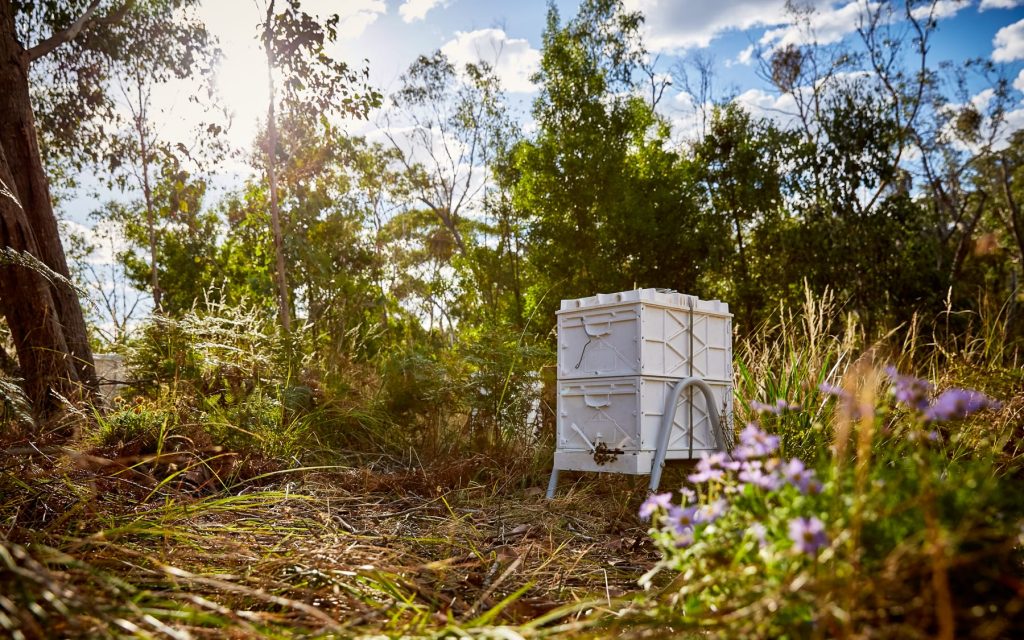
The big plus here of Plastic Vs Timber is the initial setup cost and long term maintenance. A smart reason to make the swap or start your beekeeping journey.
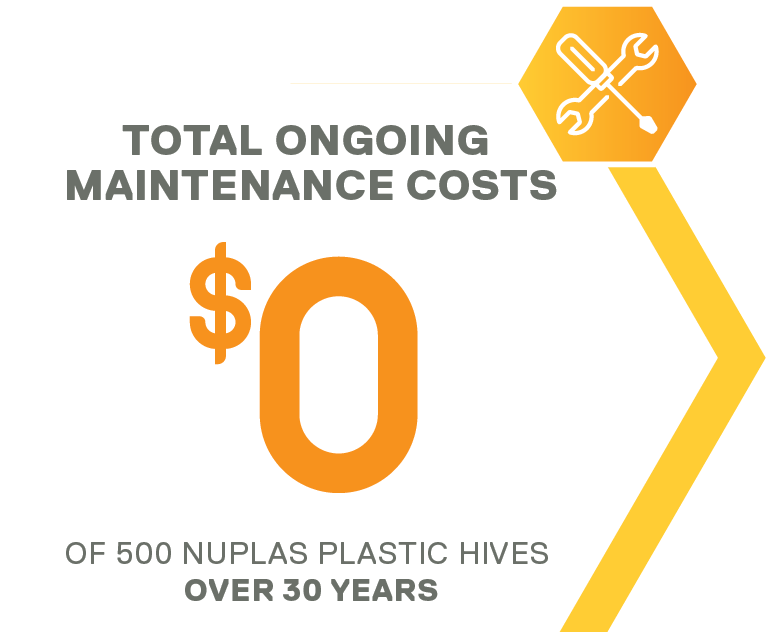
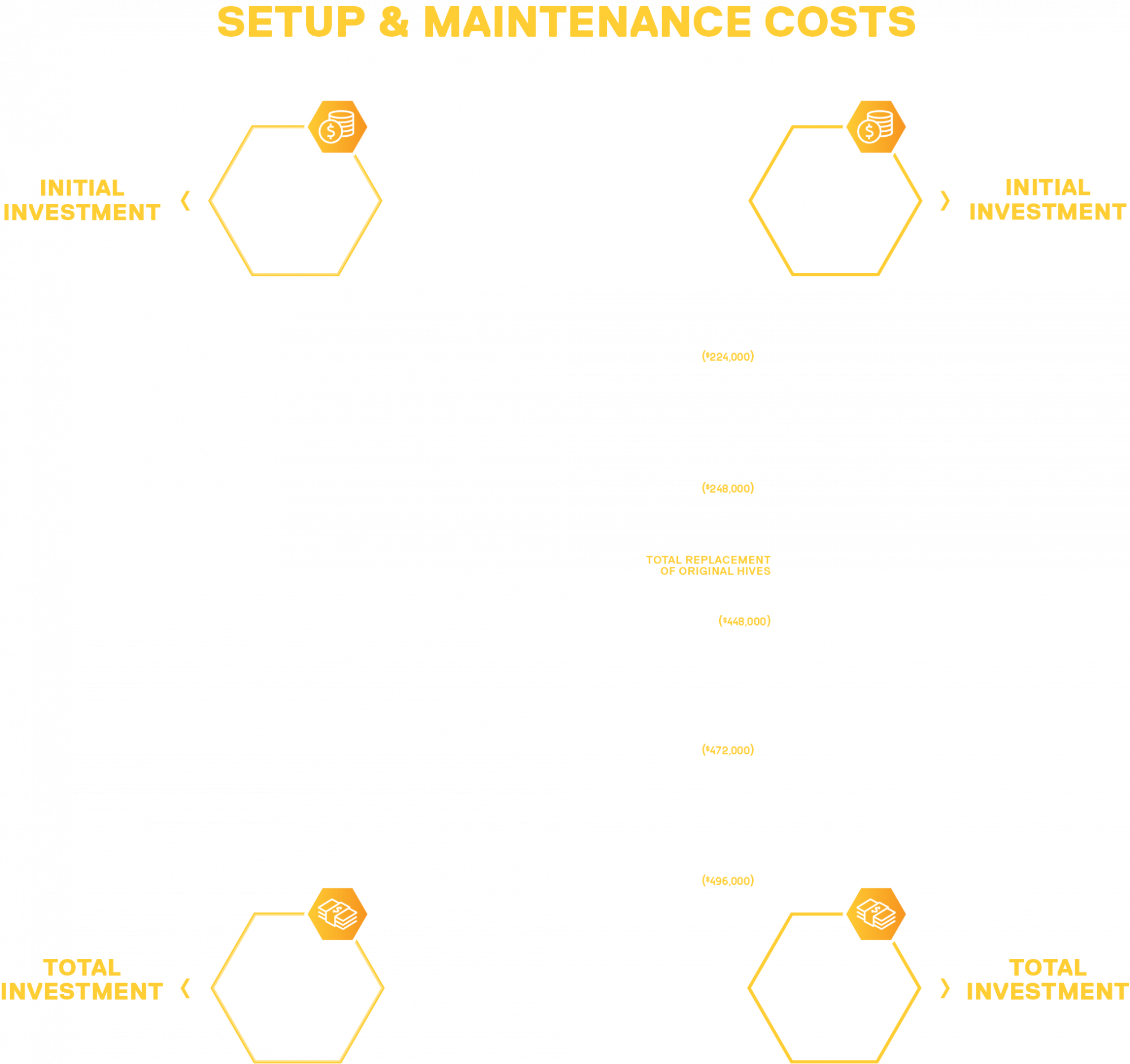
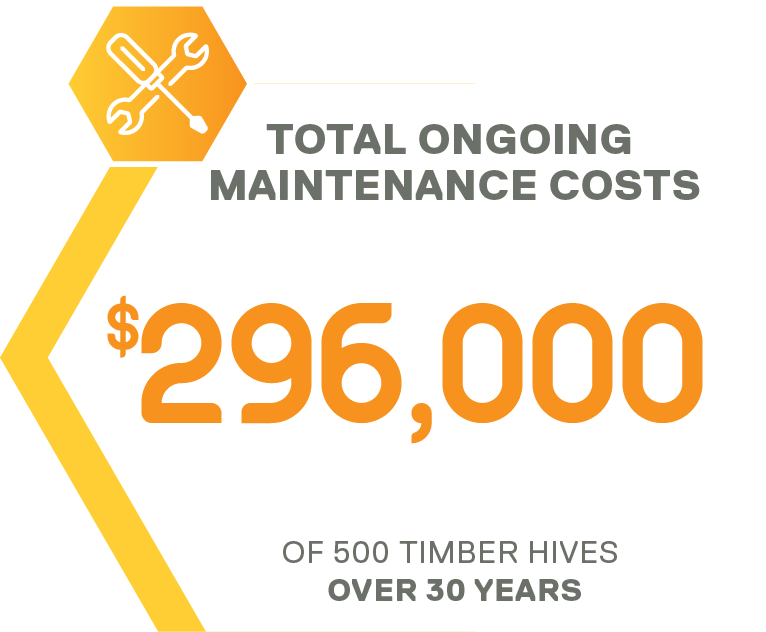
// Assumptions: 1 person labour @ $25.00/hour
// Inclusions: purchase price, materials cost.
// Not included: freight, warehousing and transport of decommissioned hives, recommissioning and transport of hives, disruption of colonies, branding and labelling hives, wax coating foundation or plastic frames as these two cancel one another out.
Breakdown of the Nuplas Plastic Bee Hive
Our unique plastic bee hive design has many benefits and innovative components. Designed for both commercial and hobbyist beekeepers, our products and systems help streamline the traditional processes of the apiary.
At close inspection you will notice the Nuplas Beehives can be used right around the this great continent of ours, combating the various hot , tepid and cold regions of Australia
Click on the hot spots and explore the many great features.
Breakdown of the Nuplas Plastic Bee Hive
Our unique plastic bee hive design has many benefits and innovative components. Designed for both commercial and hobbyist beekeepers, our products and systems help streamline the traditional processes of the apiary.
Click on the hot spots and explore the many great features.
Our unique plastic bee hive design has many benefits and innovative components. Designed for both commercial and hobbyist keepers, our products and systems help streamline the traditional processes of apiary, helping them benefit (as well as their bottom lines).
Click on the hot spots and explore the many great features.

Key features of the Nuplas plastic beehive over other traditional timber hives
Plastic Hives

PROS
- Low maintenance and little to no repair required
- Easy to assemble modules
- Made from recycled plastic
- Doesn’t rot
- Much longer product life cycle
+
- Much lower ongoing costs
- No painting required
- No wax dipping required
- Faster installation times
- Quicker speed to market
- Much higher resistance to disease
- UV resistant
- Long life cycle
- In stock & ready to dispatch
- Australian made
- Recyclable
- Sturdy and tough
- Integrates into current wooden systems seamlessly
- Standard industry configurations
(uses standard Langstroth system) - Termite proof
- Little disruption to colonies
- BPA free
Timber Hives

PROS
- Initial lower cost
- Easy to modify
- Natural materials
- Timber is always available
- Easy to repair
Plastic Hives

CONS
- Heavier
- Higher initial cost
- Slippery
- Harder to modify on site
Wooden Hives

CONS
- Constant high maintenance
- Easily damaged
- Long lead time to preparation
- Highly susceptible to rot and water/wood-borne disease
+
- Termites love timber beehives
- Hives have to be processed
- Requires painting and treatment
- Time consuming
- Higher disruption to bee colonies at maintenance period
Still considering?
Let’s take a deep dive in to the pros and cons
The pros and cons of plastic hives
Plastic hive advantages
- No assembly required – Plastic bee hives come pre-assembled and ready to install.
- Impervious to wax moths – Plastic foundations feature hexagonal combs that wax moth larvae are unable to burrow through. This prevents their spread and preserves your honey.
- Hold up well in extractors – Plastic hives hold up well in extractors and are easy to scrape clean for reuse. You can even blast them clean with a pressure washer!
- Makes spotting eggs a breeze – Black plastic frames, in particular, offer a stark contrast to the little white orbs that are the queen’s eggs, which will make locating them much easier.
- Very durable – Plastic frames are built to last. They won’t split when prying them free from propolis encrusted hive bodies or when scraping them clean.
Plastic hive disadvantages
- More expensive than wood and non-renewable – Plastic frames will last longer than wooden frames, and this is reflected in the cost. Plastics are also non-renewable, so you’ll need to ensure you recycle them when they are replaced.
- Bees may reject them – Plastic hives typically come coated in a layer of beeswax so that bees will accept them, but this isn’t always the case. On rare occasion, bees may refuse to engage with plastic hives, particularly if the plastic foundation offers inflexible hexagons that are not the size the bees desire.
- Infectious bee diseases must be treated with expensive radiation – Diseases like American foulbrood that can destroy a hive need to be eliminated. Wooden frames can simply be burnt and replaced, destroying spores and larvae and clearing the way for a new hive. Plastics, however, need to be treated with expensive radiation.
The pros and cons of wooden hives
Wood hive advantages
- Natural and renewable – For the environmentally–conscious apiarist, wooden frames are the natural choice. They are also renewable and can be safely disposed of.
- Familiar and comfortable for bees – Your bees will find wooden frames and foundations familiar and comfortable and won’t hesitate to embrace your hive and begin production.
- Complements honey flavour and aromatics – The fresh smell of white pine will add a touch of scent to your honey. Honey connoisseurs may even pick up a little woodiness in the taste as well.
- Can be disassembled – Wooden frames are made to be disassembled and easily stored. This is because wooden foundations split or warp easily, particularly when you’re scraping them clean. Components can be mixed and matched, making storage easier and maintenance more cost-efficient.
- Cheaper and lighter – Wood is abundant, and pine in particular is inexpensive. Wooden frames are also lighter and cheaper than plastic frames.
Wood hive disadvantages
- Split and warp easily – Wooden frames don’t have a very long lifespan, and often split or crack when prying them loose from hive bodies encrusted with propolis. Wooden hives are also vulnerable to warping in hot and humid summers.
- Difficult to scrape clean – Wooden frames must be scraped clean of remaining propolis before reuse, which can be laborious and challenging.
- Vulnerable to wax moth damage – Wax moth larvae will find it easy to burrow through wooden foundations, corrupting hives with veins of silk web.
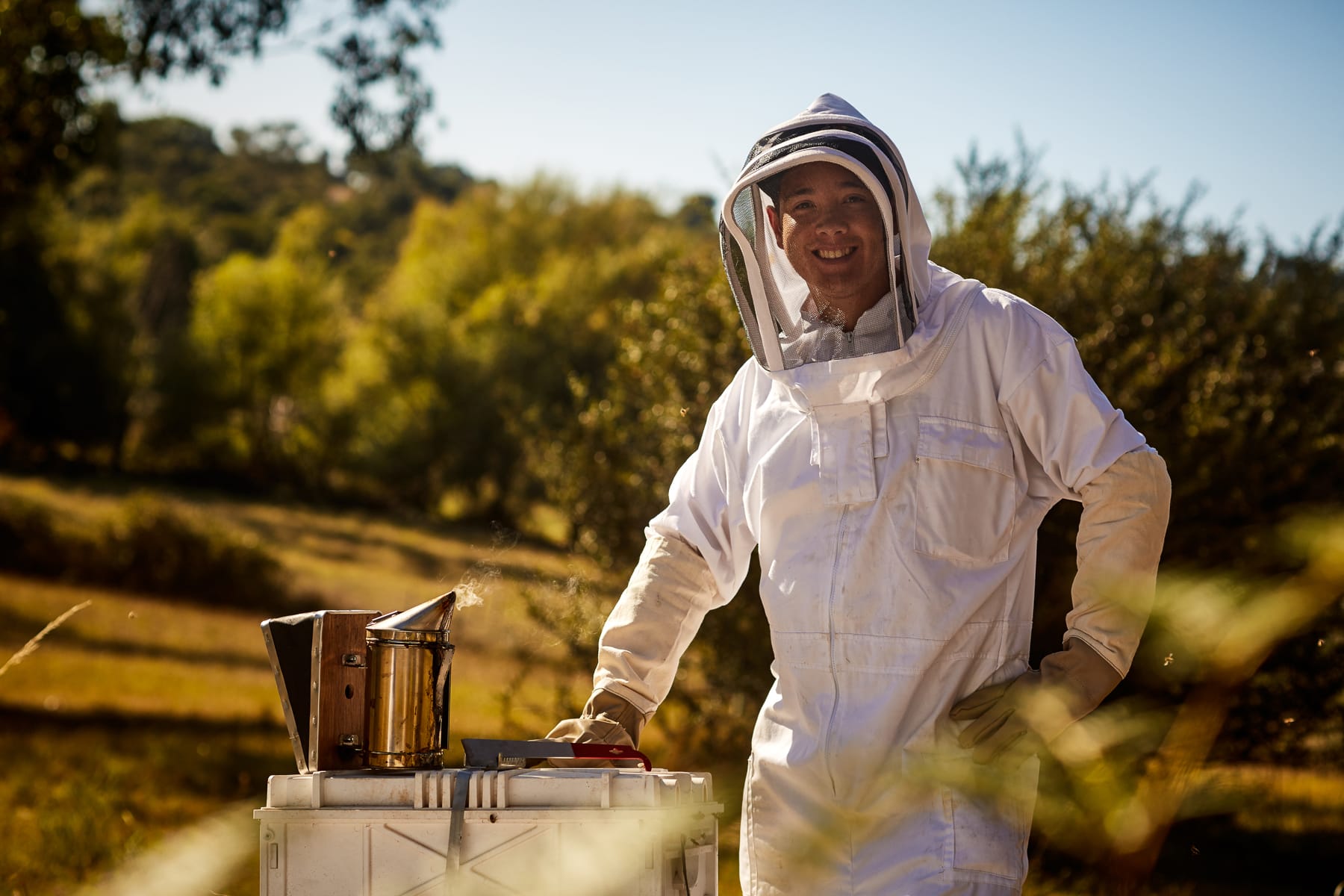
With this information we hope we are making it easier for you to decide and find the perfect apiary for you.
So, whether you’re looking for wooden or plastic bee hives or some combination of the two as a hybrid, Nuplas Apiarist Supplies have the components you need to build your dream beehive. As Australia’s foremost supplier of apiarist beekeeping accessories, we can guarantee we’ll have the components you need.
Contact Nuplas Apiarist Supplies today and speak with our beekeeping specialists about the right components for you.

